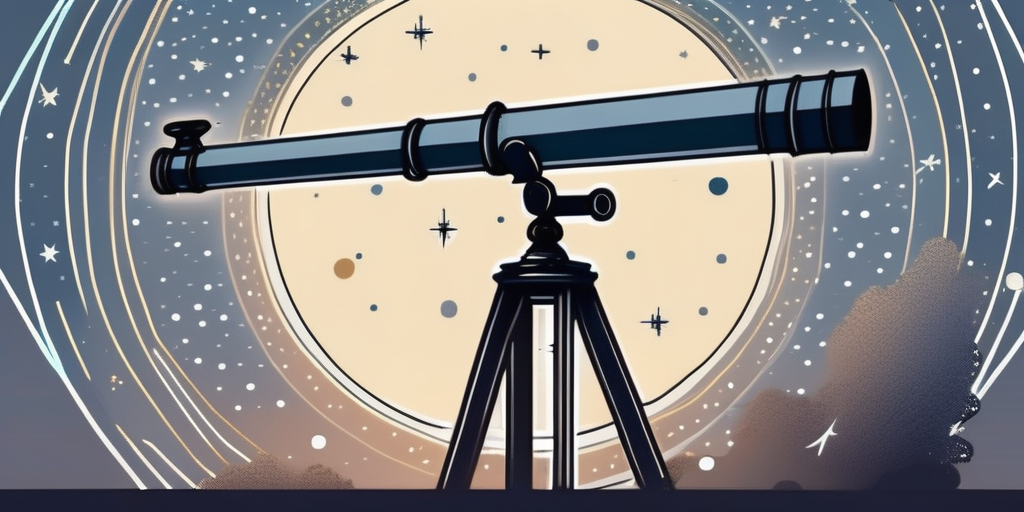
Galileo Galilei’s Contributions to Fluid Dynamics
Galileo Galilei - Fluid Dynamicist
Galileo Galilei, also known as the "father of modern science," was an Italian physicist, mathematician, astronomer, and philosopher. He made significant contributions to various fields, including physics, astronomy, and fluid dynamics. Throughout his life, Galileo revolutionized scientific observation and experimentations, paving the way for future advancements in these fields.
Early Life and Studies
Born on February 15, 1564, in Pisa, Italy, Galileo Galilei grew up in a family of intellectuals. His father, Vincenzo Galilei, was a renowned musician, composer, and music theorist. Influenced by his father's love for mathematics and music, Galileo developed a passion for the sciences from an early age.
Galileo's formal education began at the age of 10 when he was sent to study at the monastery of Santa Maria di Vallombrosa. There, he acquired a solid foundation in mathematics and became fascinated with the works of Archimedes and Euclid. These ancient scholars inspired him to think critically and analytically.
Galileo's time at the monastery was not only dedicated to his academic pursuits but also exposed him to a rich cultural and intellectual environment. Surrounded by monks who were scholars in various fields, Galileo engaged in stimulating discussions and debates that further fueled his thirst for knowledge.
After completing his studies at the monastery, Galileo enrolled at the University of Pisa, where he pursued a degree in medicine, as per his father's wish. However, his curiosity and penchant for experimentation steered him towards a different path. While attending lectures on medicine, Galileo found himself more captivated by the principles of mathematics and physics being taught in the university's renowned School of Mathematics.
Galileo's decision to shift his focus from medicine to mathematics and physics was not an easy one. It required him to defy his father's expectations and face the uncertainty of pursuing a less conventional path. Nevertheless, Galileo's passion for understanding the natural world and his unwavering determination led him to make this pivotal choice.
As Galileo delved deeper into the realms of mathematics and physics, he became increasingly dissatisfied with the traditional Aristotelian approach that dominated the scientific community at the time. He questioned the accepted beliefs and theories, seeking empirical evidence to support or refute them. This approach, known as experimental science, would become a hallmark of Galileo's work and set him apart from his contemporaries.
Galileo's insatiable curiosity and his dedication to empirical observation and experimentation would soon propel him to new heights of scientific discovery. His groundbreaking contributions to astronomy, physics, and mathematics would forever change our understanding of the universe and lay the foundation for modern science.
Biggest Discoveries and Accomplishments
Galileo Galilei, one of history's most influential scientists, left an indelible mark on the fields of astronomy, physics, and the scientific method. His tireless pursuit of knowledge and groundbreaking discoveries revolutionized our understanding of the universe and laid the foundation for modern science.
One of Galileo's most notable achievements was his introduction of the telescope for astronomical observations. In 1609, he created an improved version of the telescope, which allowed him to make groundbreaking discoveries. With his newly enhanced instrument, Galileo directed his gaze towards the night sky, revealing a wealth of celestial wonders that had previously remained hidden from human eyes.
Galileo's observations of the moon's craters unveiled a rugged and pockmarked lunar landscape, challenging the prevailing belief that the moon was a perfect and unblemished sphere. These findings not only shattered long-held assumptions but also provided concrete evidence to support the heliocentric model proposed by Copernicus. By observing the moons of Jupiter, Galileo demonstrated that celestial bodies could orbit a planet other than Earth, further undermining the geocentric view of the universe.
Moreover, Galileo's meticulous observations of Venus' phases provided additional evidence to support the heliocentric model. By carefully documenting the changes in Venus' appearance as it orbited the sun, Galileo showed that Venus went through a series of crescent and gibbous phases, much like our own moon. This observation directly contradicted the Ptolemaic system, which held that Venus always appeared as a fully illuminated disk.
In addition to his astronomical discoveries, Galileo made significant contributions to the field of physics. He formulated the laws of motion and developed a mathematical language to describe the movement of objects. Galileo's experiments involving inclined planes and falling bodies proved that all objects, regardless of their mass, fall at the same rate in a vacuum. These findings challenged the prevailing Aristotelian view, which stated that heavier objects fell faster than lighter ones. Galileo's experiments laid the foundation for Isaac Newton's laws of motion, which revolutionized physics and paved the way for our modern understanding of the physical world.
Furthermore, Galileo's insatiable curiosity and commitment to empirical investigation contributed to the development of the scientific method. He emphasized the importance of systematic observation, experimentation, and mathematical analysis, shaping the way scientific investigations are conducted to this day. Galileo's rigorous approach to scientific inquiry set a new standard for the pursuit of knowledge and inspired generations of scientists to follow in his footsteps.
In conclusion, Galileo Galilei's discoveries and accomplishments have left an indelible mark on the fields of astronomy, physics, and the scientific method. His introduction of the telescope, his groundbreaking observations of celestial bodies, his formulation of the laws of motion, and his emphasis on empirical investigation have shaped our understanding of the universe and the way scientific inquiries are conducted. Galileo's legacy continues to inspire and guide scientists as they explore the mysteries of the cosmos and unravel the secrets of the natural world.
Contributions and Legacy in Fluid Dynamics
Beyond his accomplishments in astronomy and physics, Galileo Galilei also made significant contributions to the field of fluid dynamics. His curiosity and scientific rigor led him to conduct groundbreaking experiments on the flow of fluids, particularly in the areas of hydrodynamics and hydraulics.
One of Galileo's notable observations was his study of water flow through small tubes and orifices. Through meticulous experimentation, he discovered that the speed of fluid flow is directly related to the size of the opening. This groundbreaking insight laid the groundwork for the development of mathematical principles governing fluid flow.
Galileo's work on fluid dynamics led to the formulation of the continuity equation, a fundamental principle in the study of fluid mechanics. This equation states that the mass of fluid flowing into a pipe is equal to the mass flowing out, establishing the principle of conservation of mass. This principle has since become a cornerstone in various scientific and engineering disciplines.
In his influential book, "Discourses on Two New Sciences," Galileo delved deeper into the mechanics of suspended bodies, waves, and the nature of fluid resistance. He explored the behavior of fluids in different scenarios, providing valuable insights into the underlying principles governing fluid dynamics.
Galileo's investigations into fluid dynamics had far-reaching implications and greatly influenced future scientists and engineers. His groundbreaking discoveries propelled advancements in fields such as aviation, naval architecture, and civil engineering. Engineers and designers drew inspiration from Galileo's work to develop more efficient and streamlined structures, leading to significant progress in various industries.
Galileo Galilei's relentless pursuit of scientific truth and his courageous defiance of dogma left an indelible mark on the scientific community. His revolutionary discoveries and contributions continue to inspire generations of scientists and thinkers, reminding us of the power of observation, experimentation, and critical thinking in unraveling the mysteries of the universe.
Furthermore, Galileo's work in fluid dynamics paved the way for further advancements in the field. Building upon his foundation, scientists and engineers have continued to explore and refine our understanding of fluid behavior. This ongoing research has led to the development of sophisticated mathematical models and computational tools that allow for accurate predictions and simulations of fluid flow.
One area where Galileo's contributions have been particularly influential is in the study of aerodynamics. By applying the principles of fluid dynamics, researchers have been able to design more efficient and aerodynamic aircraft. Galileo's initial observations on fluid flow through small openings laid the groundwork for the development of streamlined shapes and designs that minimize drag and maximize lift.
In naval architecture, Galileo's insights into fluid resistance and flow patterns have played a crucial role in the design and optimization of ships. By understanding how water interacts with the hull and the principles that govern fluid flow, engineers have been able to create vessels that are more fuel-efficient and maneuverable.
Civil engineering is another field that has benefited greatly from Galileo's contributions to fluid dynamics. By studying the behavior of fluids in pipes and channels, engineers can design efficient systems for water supply, irrigation, and drainage. Galileo's work on the continuity equation provided a solid foundation for the development of hydraulic systems that efficiently transport fluids and control their flow.
Galileo Galilei's legacy in fluid dynamics is a testament to his insatiable curiosity and his unwavering commitment to scientific inquiry. His pioneering work continues to shape our understanding of fluid behavior and has paved the way for countless advancements in various scientific and engineering disciplines. Galileo's contributions serve as a reminder of the profound impact that a single individual can have on the progress of human knowledge.
